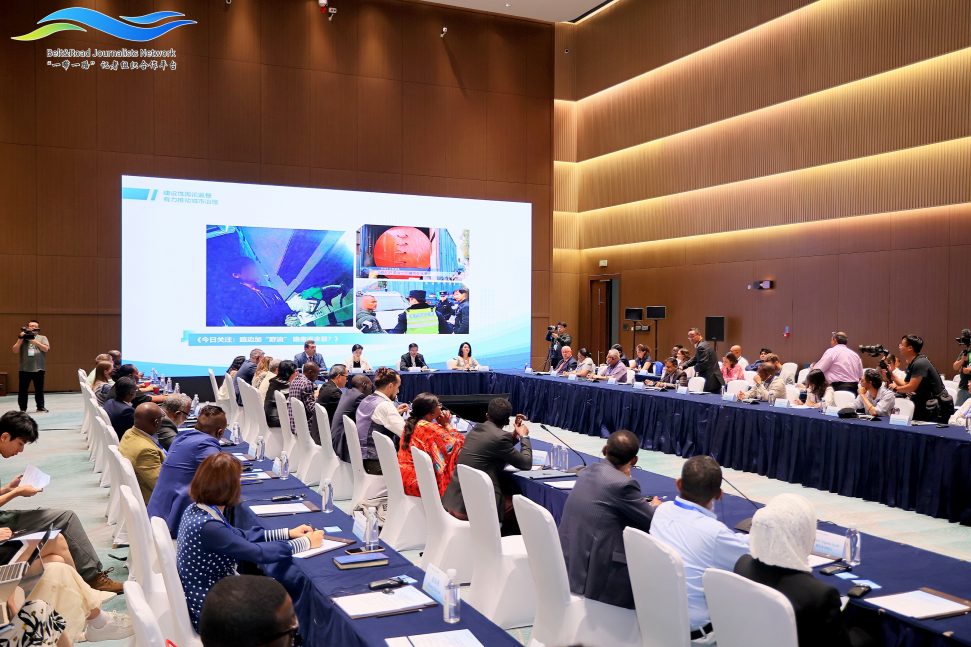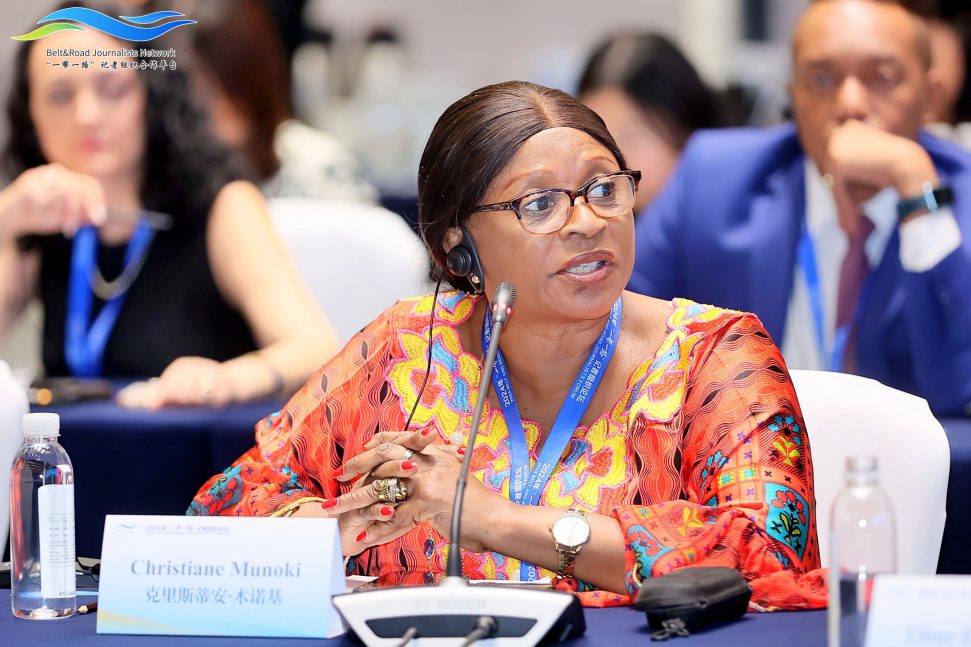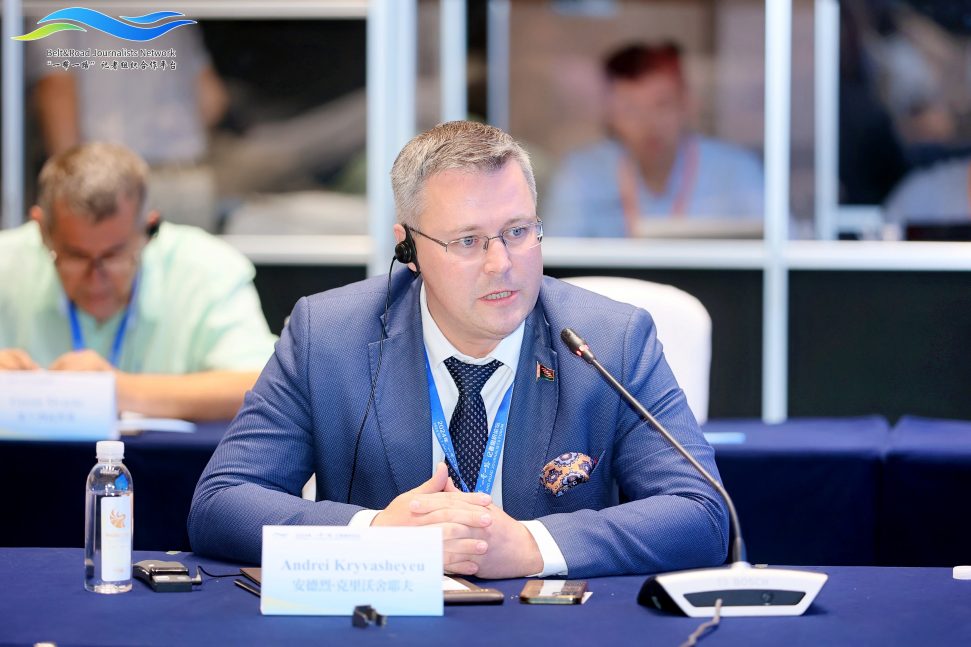On August 31, the Roundtable of International Journalists Organization of 2024 Belt and Road Journalists Forum began in Chongqing, bringing together media representatives from Belt and Road countries to discuss global journalism trends and collaboration.
 The Roundtable of International Journalists Organization of 2024 Belt and Road Journalists Forum kicked off in Chongqing on August 31. (Photo/Belt&Road Journalists Network)
The Roundtable of International Journalists Organization of 2024 Belt and Road Journalists Forum kicked off in Chongqing on August 31. (Photo/Belt&Road Journalists Network)
Guan Hong, Chairman of the Chongqing Journalists Association, represented Chongqing, China’s largest city by area and population, at the roundtable. He highlighted the success of Chongqing TV’s “Today’s Focus” program, which has played a vital role in modern urban governance by addressing environmental management, workplace safety, and social welfare.
Guan cited the resolution of severe pollution at the Xiaojia River and the improvement of flood relief in Dianjiang County, both achieved following the program’s investigations. These cases demonstrate how thorough journalism can lead to significant improvements in public administration and services.
The discussion sparked engagement among attendees. Taluck Beeharry, Chairperson of Media Trust in Mauritius, remarked, “It is encouraging to see such efforts in China, and I hope Chongqing’s media will continue to serve the people with dedication.”
Furthermore, Mahamound Tahir Abbas, President of the Union of Chadian Journalists, noted, “The media wields significant power in guiding public opinion, often surpassing even legal and judicial authority. Chongqing’s investigative work sets a high standard for us. We need to enhance our investigative capacities and address the issue of journalist intimidation through training.”
The focus then shifted to the challenges faced by women in the media industry. Christiane Munoki Nkeng from the Democratic Republic of Congo highlighted persistent social issues such as low pay, limited advancement opportunities, and gender bias.
She pointed out, “Despite their active participation, women in media face numerous obstacles, including inadequate representation and traditional biases. Addressing these challenges is crucial for fostering their professional growth.”

Meanwhile, Maria Luisa Ribeiro de Castro Fernandes, CEO of Shopping de Comunicação in Brazil, noted, “Women play a crucial role in China’s media, and China’s emphasis on youth involvement is commendable. The energy and respect shown by young participants reflect a strong commitment to nurturing the next generation.”
The discussion then shifted to how social media is utilized in news reporting. Solovyev Vladimir, President of the Russian Union of Journalists, shared, “Almost all Russian journalists use Telegram for updates and actively develop video content. By registering official media accounts and collaborating with prominent bloggers, we aim to enhance news delivery.”
Andrei Kryvasheyeu, Chairman of the Belarusian Union of Journalists, highlighted, “Belarus has made strides in improving government-public communication. Chongqing’s media advancements offer valuable lessons for Minsk, and international cooperation can further enhance our problem-solving and citizen-protection efforts.”

Andrei Kryvasheyeu, Chairman of the Belarusian Union of Journalists. (Photo/Belt&Road Journalists Network)
Christopher Isiguzo, National President of the Nigeria Union of Journalists, addressed the challenge of misinformation, likening it to a pandemic. He emphasized, “The spread of false information is as damaging as an epidemic. We must adapt our approaches to combat misinformation and protect our profession from being undermined.”
